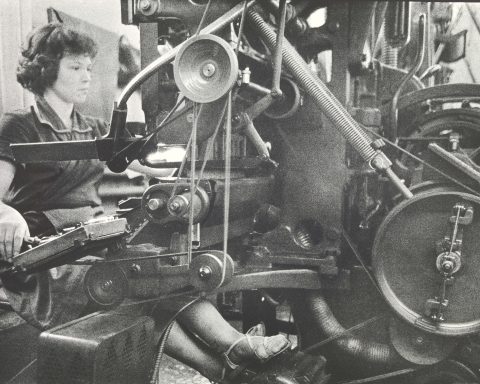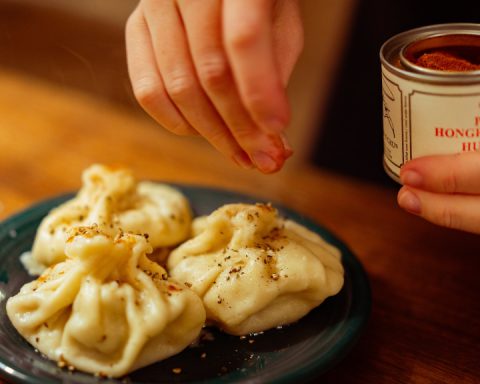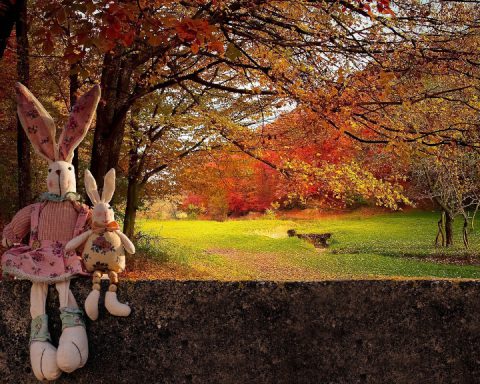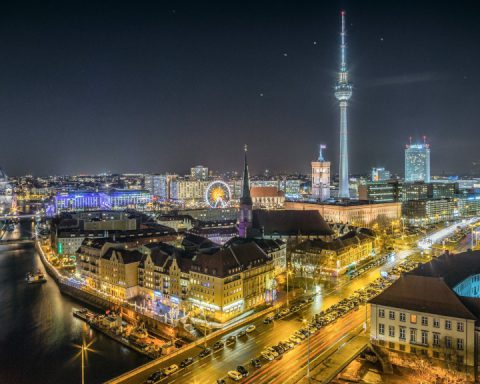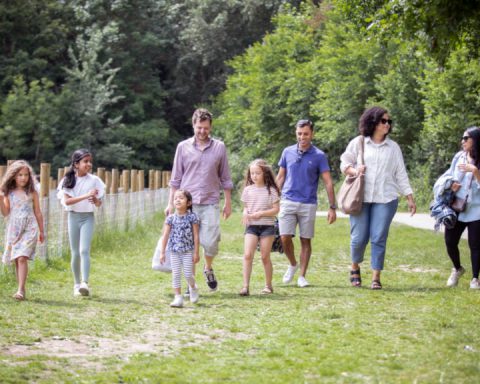Since its construction in the 1950s, Chungking Mansions in Hong Kong has been the subject of local legends, films, and anthropological studies. At times, it has even been compared to the infamous Kowloon Walled City.

Consisting of 17 storeys and five blocks, Chungking Mansions went from its glorious beginnings as a luxury housing compound and the tallest building on the Kowloon peninsula, through infamous years of crime and legal notoriety, to a center for the “low end of globalization trade.”
Nowadays, it is arguably “the most globalized building in the world.” The luxury apartments from the past have long been transformed into (often semi-legal) hostels, restaurants, cafes, clothing stores, phone shops, currency exchanges, and whatever other enterprise may prove profitable.
Recently, it has been estimated that on a busy night, Chungking Mansions can host up to 8,000 people from over 120 different nations.

This is partly due to the constantly increasing number of budget hostels, which along with mobile phones and electronics, has been the more profitable business initiative over recent decades. Today, the Hong Kong building’s inhabitants and visitors vary from budget travelers to tourists; businessmen to traders; sex workers to drug dealers; asylum seekers to economic migrants; charity workers to ordinary punters.
Chungking Mansions is a self-sustained micro-economy and can be regarded as a microcosm of the globalized world itself. It is first and foremost a place of business and moneymaking – a characteristic so often ascribed to the city of Hong Kong and its modern history. A place where traders, businessmen, economic migrants, and hawkers from all corners of the world come to seek their fortunes, with free market and entrepreneurship being considered some of its most cherished qualities.

For these fortune-seekers – just as much as for the “pirates” calling to the Hong Kong shores in the 19th century – Chungking Mansions is a waiting terminal to the different, more comfortable and prosperous world they desire, however each dweller defines it.
But on a socio-cultural level, Chungking Mansions is much more than just a place of commerce.
For economic migrants, the semi-legal arrangements of many of the businesses offer an opportunity to earn much needed income in order to support entire families back in their home countries. Charity organizations operating in the building provide legal advice and initial help for asylum seekers and refugees. Members of various ethnic minorities living in Hong Kong bring their families for affordable and authentic cuisine from African and South Asian countries. Hong Kong’s domestic workers come here on their days off for a piece of privacy and intimacy. Hip hop crews hang around urban clothing stores, while members of Christian communities attend daily service in one of the building’s converted apartments.
And at night, many enjoy a drink and even a dance in one of the drinking bars blasting out loud music on the ground floor.

As many people of color there say, Chungking Mansions is a “room within the city where [they] can feel comfortable” – away from the often suspicious gazes of Hong Kong society.
In recent years, CCTV cameras have been installed along the corridors, and security guards patrol the building daily. It is a joint effort from the municipal district and building management to alter its negative image and reputation.
Undoubtedly, problems still occur: fights break out, illicit trade and prostitution exist, the building as a whole stands out with its dirty corridors. There are people troubled with addiction, and the building’s maze-like architectural construction still serves as a hideout for petty criminals.

Yet simultaneously, work ethics and social norms prevail and are being established in accordance with negotiable rules regarding multiculturalism and religious pluralism.
The latter is best exemplified by the variety of religious and cultural festivals, such as Hindu Diwali, Muslim Ramadan, and Christian Christmas, among others.
One thing is for certain: The people of Chungking Mansions dislike crime just as much as the rest of Hong Kong. At the end of the day, shop owners there agree that the “notorious reputation of the building is not good for business” – and that’s what holds Chunking Mansions (as well as Hong Kong!) together.
By Mariusz Bogacki
Mariusz Bogacki is an independent researcher and documentary photographer. His visual practice builds on academic training in ethnography and social sciences. It concentrates on the investigation of contemporary notions of identity, society and culture in the context of a “globalized world.” Mariusz has worked and studied internationally in countries such as the United Kingdom, Palestine, India, China, and Poland. He is currently continuing his education on a Master’s level in Global Studies, at the University of Leipzig.
Instagram: @Im_new_here_
Website: www.mariuszbogacki.com
Cover photo © Mariusz Bogacki

